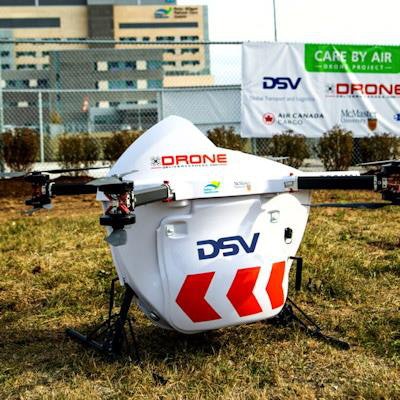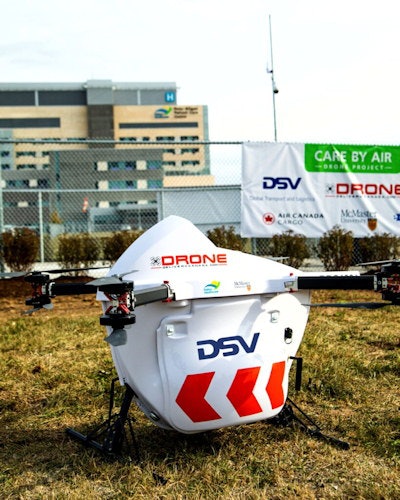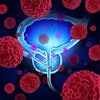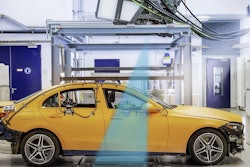
Cargo drones carrying medical isotopes could become an integral part of radiopharmaceutical supply chains, according to research presented July 26 at the International Conference on Isotopes meeting in Saskatoon, Saskatchewan, Canada.
Nuclear scientist Andrea Armstrong, PhD, of McMaster University in Hamilton, Ontario, Canada, presented a pilot study at the conference describing efforts to launch a program using Remotely Piloted Aircraft Systems (RPAS, or "drones") to deliver radioactive payloads.
"The objective of this work was to develop a regulatory pathway for transporting Class 7 Dangerous Goods using commercial cargo drones," Armstrong noted.
As global demand for radiopharmaceuticals grows, robust supply chains are necessary to increase clinician confidence in access to these agents, which will in turn drive their commercial performance, Armstrong said. Drones are a potential solution to some of the challenges inherent to the radiopharmaceutical supply chain, she added.
For example, bypassing traffic congestion would enable guaranteed transit times of short-lived gallium-68-based imaging agents from production facilities to clinical sites, Armstrong suggested. In addition, drops in the volume of passenger airline travel can also cause delays in shipments, as reported during the COVID-19 pandemic in 2021.
 Coming to a clinic near you? A drone used in a pilot project testing its use to deliver medical isotopes. Image courtesy of Drone Delivery Canada.
Coming to a clinic near you? A drone used in a pilot project testing its use to deliver medical isotopes. Image courtesy of Drone Delivery Canada.In the study, initially launched last year, Armstrong and colleagues first developed a modified package containing 40 GBq of lutetium-177 (Lu-177) to fit specifications of a "Sparrow" drone. Lu-177 is the isotope used in Pluvicto, for instance, a drug approved last year to treat advanced prostate cancer.
The group obtained a Special Flight Operating Conditions certificate from Transport Canada (TC) to enable test flights with increasing levels of radioactivity (from exempt to fully regulated packages) along a specified flight path. Observers from TC and the Canadian Nuclear Safety Commission attended the initial flight with the radioactive payload.
Based on their observations, the regulatory groups provided Armstrong and colleagues with a one-year operating license to conduct routine flights for the project and the group has "now completed more than a dozen flights."
Ultimately, Armstrong said that as the capabilities of RPAS expand beyond visual line of sight, and larger-capacity drones gain TC approval, the group expects that cargo drones "will become an integral part of the radiopharmaceutical supply chains."
The project, titled "Care By Air," is being led by McMaster University through a partnership between the university, Drone Delivery Canada, DSV Canada, Halton Healthcare, EllisDon, and Air Canada Cargo.





















